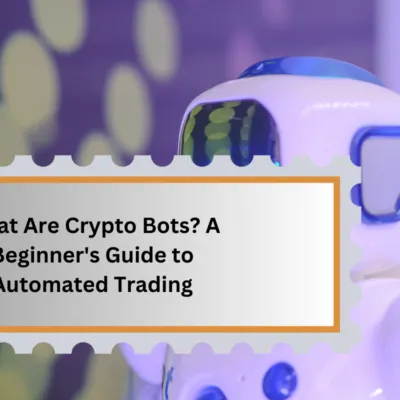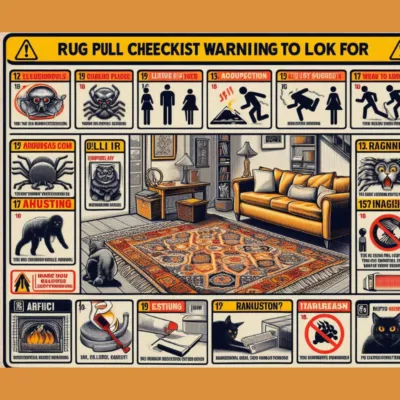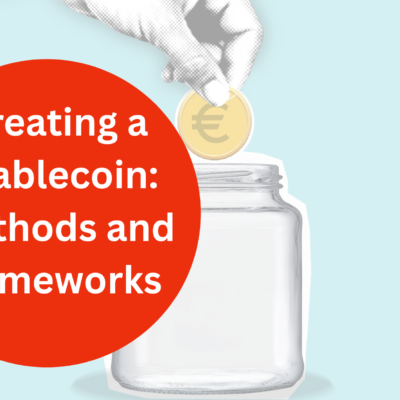Meme coins are the rebels of the crypto world, born from internet jokes, fueled by viral hype, and loved or loathed by investors. Dogecoin kicked things off with its goofy Shiba Inu logo, and now we’ve got Shiba Inu, Floki, and a flood of copycats promising the moon. They’re fun, they’re wild, and sometimes they make millionaires. But are meme coins safe? Not always. For every success, there’s a scam waiting to snatch your cash. Let’s unpack what meme coins are, why they’re risky, and how you can spot a dud before it’s too late. This isn’t just about avoiding traps, it’s about enjoying the ride without getting burned.
Meme Coins 101: What’s the Deal?
Imagine a cryptocurrency that’s less about tech breakthroughs and more about memes you’d send your friends. That’s a meme coin. They’re tokens like Dogecoin or Shiba Inu, built on blockchain but driven by laughs, trends, or Elon Musk tweets rather than real utility. They’re cheap to make—anyone with basic coding skills can whip one up, and they thrive on community buzz.
Some, like Dogecoin, have stuck around, gaining real fans and even popping up as payment options at places like Tesla. Others? They’re here today, gone tomorrow, often with your money in tow. The big question isn’t just “What are they?” but “Can you trust them?” Let’s dig in.
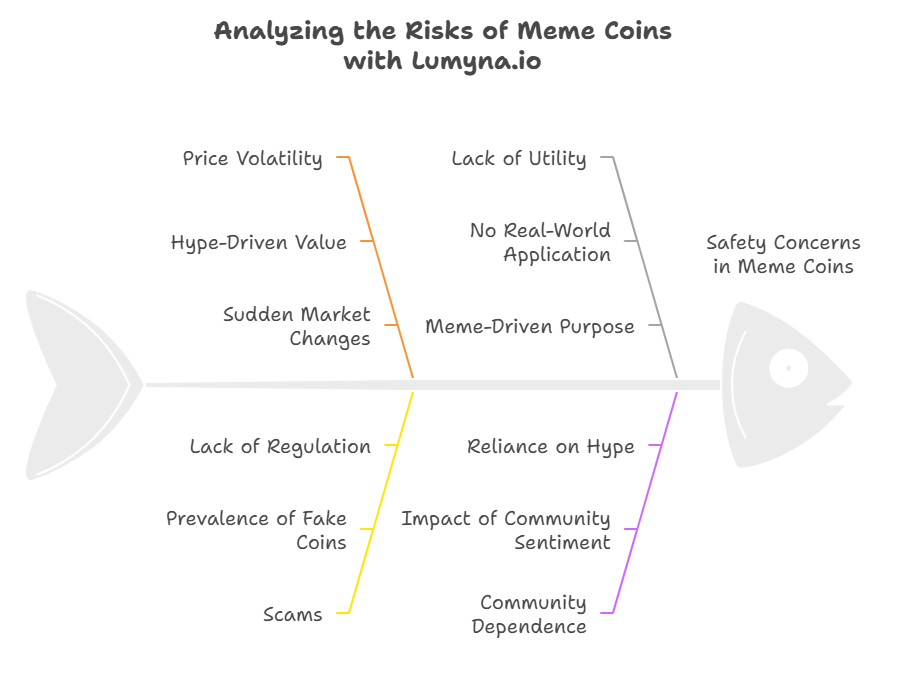
The Risky Side of Meme Coins: Why Safety’s a Concern
Meme coins aren’t your grandma’s savings account. They’re a rollercoaster—thrilling but shaky. Here’s why they’re not always safe:
- Wild Price Swings: One day you’re up 500%, the next you’re broke. Hype, not value, calls the shots.
- Scam Central: The crypto wild west has no sheriff, and scammers love it. Fake coins pop up daily.
- No Backbone: Most meme coins don’t do anything, there’s no tech or purpose beyond the meme.
- Crowd Control: If the community bails or the hype dies, so does the coin.
Does that mean they’re all doomed? Nope. Some meme coins beat the odds. But knowing the risks is step one to staying smart.
How Scammers Turn Meme Coins Into Cash Grabs
Ever wonder how a coin goes from hot topic to hot mess? Scammers have a playbook, and it’s slick. Picture this: they launch a token called “MoonPuppy,” slap a cute dog on it, and flood X with hype. You buy in, the price spikes, and then—poof—they’re gone with your money. Here’s how it usually goes down:
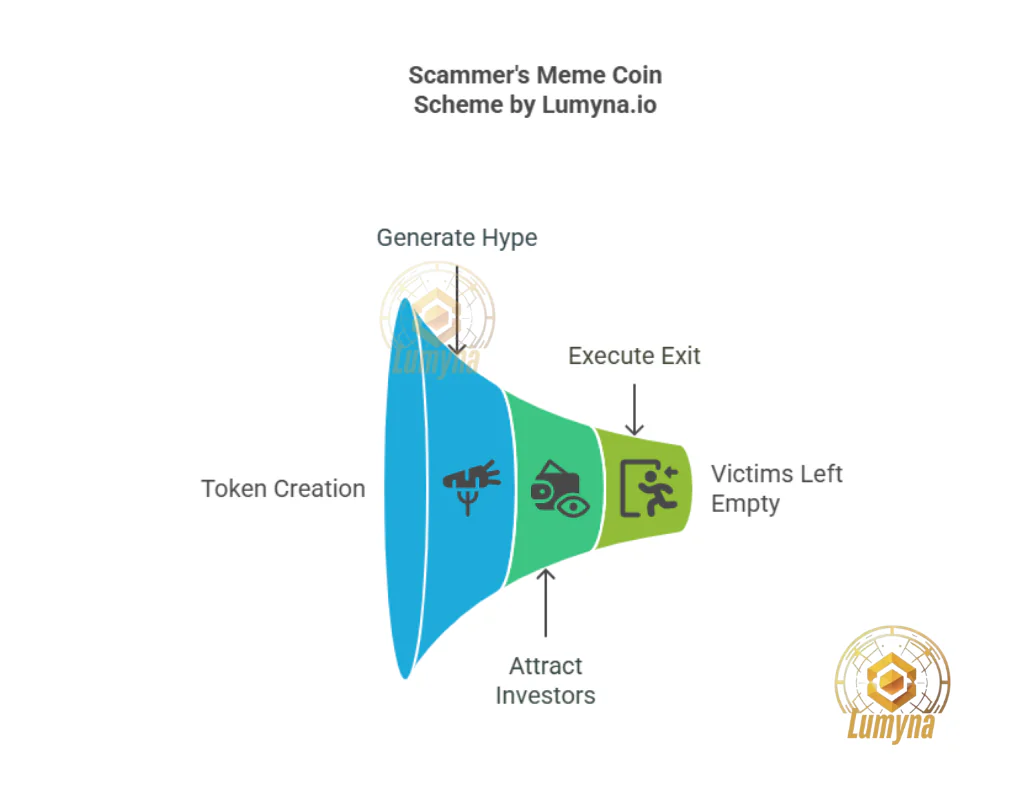
- Token Drop: They create a coin fast and cheap, maybe on Binance Smart Chain.
- Hype Machine: Fake accounts, paid shills, and Telegram groups scream, “This is the next Dogecoin!”
- Money Trap: You and others pour cash in, buying on a decentralized exchange like PancakeSwap.
- The Vanishing Act: They dump their stash or drain the liquidity pool, leaving you with nada.
It’s fast, ruthless, and way too common. But once you know the trick, you can dodge the trap.
Sneaky Meme Coin Scams You Should Know About
Scammers aren’t one-trick ponies—they mix it up. Here’s a rundown of their favorite cons:
- The Rug Pull: Hype a coin, grab the cash, and disappear. Think Squid Game token—$3 million gone in a flash.
- Pump and Crash: Insiders pump the price, then sell big, leaving you holding the bag.
- Fake Promises: They tease staking or NFTs that never happen, just to hook you.
- Copycat Coins: A “Shiba Inu Pro” pops up, banking on the real one’s fame. Spoiler: it’s a sham.
Each scam plays on your excitement. Knowing their moves keeps you a step ahead.
Warning Bells: Signs a Meme Coin Might Be Trouble
Nobody wants to lose their shirt on a bad bet. So, what screams “scam”? Here’s what to watch for:
- Mystery Makers: No names, no faces? Run. Real teams don’t hide.
- Big Talk, No Proof: “1000% gains guaranteed!” sounds great but smells fishy without evidence.
- Sketchy Setup: No whitepaper, no plan, just vibes? That’s a pass.
- Bot Brigade: If X or Discord is swarming with hype bots, it’s probably fake noise.
- Liquidity Lock? What Lock?: If they can yank the funds anytime, your money’s not safe.
Trust your gut. If it feels off, it probably is.
Lessons from the Meme Coin Graveyard
The crypto graveyard is full of meme coin flops. Take Squid Game (SQUID): it rode the Netflix wave, hit $2,800 a token, then crashed to pennies when the team bailed with millions. Or SafeMoon, its V1 version got messy with fees and drama, leaving some investors salty (though it’s still kicking in V2). These aren’t just headlines, they’re warnings. Hype can blind you, but history doesn’t lie.
Finding the Good Ones: Can Any Meme Coin Be Safe?
Not every meme coin is a scam waiting to happen. Some have staying power. Here’s how to spot the safer bets:
- Real People Behind It: A team you can Google with a legit crypto resume? That’s a plus.
- Crowd Power: A big, active community., like Dogecoin’s, can keep a coin alive.
- Checked Code: Audits from pros like CertiK mean the tech’s been vetted.
- A Little Substance: Shiba Inu’s Shibarium adds some meat to the meme. Utility helps.
- Time-Tested: Coins that survive crashes (hello, DOGE) have grit.
They’re still risky, but these signs tilt the scales toward “safer.”
Your Playbook: Staying Safe with Meme Coins
Want in on the meme coin fun without the tears? Here’s how to protect yourself:
- Dig Deep: Research the team, read the fine print, and skip the hype. Google is your friend.
- Dip a Toe: Start with pocket change you won’t miss. It’s a gamble, not a paycheck.
- Lock It Up: Use a hardware wallet—think Ledger or Trezor—and keep your keys secret.
- Say No to FOMO: Everyone’s screaming “buy now”? That’s when you pause.
- Stick to the Big Names: Newbies? Try DOGE or SHIB on trusted exchanges like Binance first.
It’s about playing smart, not scared.
Why Meme Coins Are a Scammer’s Dream
Ever wonder why scams love meme coins? It’s simple: they’re easy pickings. Anyone can launch one cheap, hype spreads like wildfire online, and crypto’s no-rules vibe lets bad guys thrive. Plus, we’re all suckers for a good story. especially one promising overnight riches. It’s a perfect storm, and scammers know it.
Caught in a Scam? Here’s What to Do
If a meme coin pulls a fast one on you, don’t beat yourself up—act. Screenshot everything: the site, your trades, the hype posts. Report it to the FTC or a crypto watchdog like RugDoc. Shout it out on X or Reddit to warn others. Recovery’s a long shot—crypto’s one-way streets don’t forgive—but pros like blockchain trackers might help. Better yet, learn and move on.
Wrapping It Up: Meme Coins Are a Gamble Worth Understanding
So, are meme coins safe? Not really, but they’re not all scams either. They’re a high-stakes game where Dogecoin wins big and Squid Game flops hard. The trick is knowing what you’re getting into: a wild ride with big risks and maybe big rewards. Spot the scams, bet smart, and you might just laugh your way to the bank. Got a meme coin story? Drop it below, I’d love to hear how you’re navigating this crazy space.

